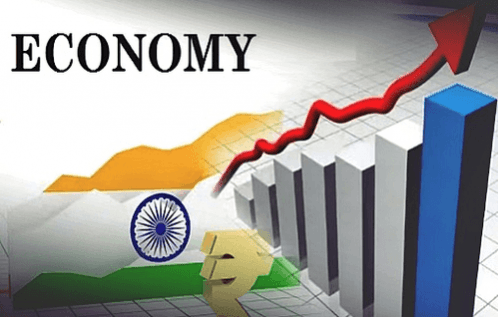
The world's economic system stands at a critical crossroads. What once appeared to be the dawn of democratized growth, propelled by digitalization, has evolved into a new landscape where economic power is concentrated and the foundations of global trade are being dramatically reconfigured. The transformative nature of these shifts compels not just scrutiny, but an urgent call to redesign the mechanisms that shape collective prosperity in the 21st century.
The Rise of Digital Oligopolies and Structural Fragility
Rather than fueling diversity in competition, the digital revolution has led to an unprecedented concentration of power within a select group of multinational corporations. Just five firms now account for nearly half of all global digital sales a figure unimaginable a decade ago. These entities are no longer simply providing services or platforms; they have ascended to the level of critical global infrastructure, enforcing standards, controlling essential data flows, and shaping the rules of engagement for entire sectors spanning finance, healthcare, logistics, and beyond.
The recent surge in alliances between these giants and the world's leading AI startups consolidates not only their technological advantage, but their influence over productivity benchmarks and innovation pipelines. This efficiency, however, brings systemic vulnerabilities: supply chains are more intertwined, cyber risks amplified, and a bottleneck effect threatens to stifle the very innovation the digital era promised. The world must recognize the paradox: concentrated digital power may accelerate progress, but also create unprecedented global fragilities.
Wealth, Influence, and the Persistent Challenge of Inequality
The soaring wealth of leaders like Sundar Pichai is emblematic of broader economic trends. Value and influence are channeled toward a shrinking elite, deepening income disparities and skewing access to opportunity. This pattern not only entrenches inequality within societies but also tilts the global distribution of power and resources, imposing barriers to upward mobility and equal access. As digital consolidation intensifies, so do the risks of a global economy that privileges possession of capital and data over broad-based participation, with social cohesion and trust in institutions jeopardized as a consequence.
Policy Challenges in the Era of Digitally Borderless Economies
Regulatory frameworks are struggling to match the borderless reach and unprecedented speed of technological consolidation. Traditional antitrust measures, designed for a more localized and less connected world, are proving inadequate. Market oversight lags behind industry innovation, allowing firms to exploit loopholes and accumulate influence without proportional accountability. This gap is not a temporary inconvenience but an enduring structural weakness. Multilateral responses, harmonization of global standards, and shared rules on data, taxation, and platform responsibility are urgently required to realign competitive markets with inclusive growth and resilient prosperity.
Realignment of Global Trade: A New Economic Geography
Global trade is undergoing a profound shift. For the first time in recent history, advanced economies now outpace emerging markets in the expansion of trade, leveraging technological strength, institutional stability, and large consumer bases. At the same time, nations like India are disrupting longstanding patterns of production and supply. Its leap from supplying 11 percent to 36 percent of US smartphone imports within a single year marks a major reconfiguration of value chains. This development underscores the reality that competitive advantage now rests on the ability to integrate digital capabilities, build credible regulatory environments, and cultivate skilled talent at scale.
For traditional manufacturing hubs and new entrants alike, the clear lesson is that agility, innovation, and credibility are the keys to future relevance. Opportunities abound for those willing to invest in infrastructure, workforce upskilling, and regulatory modernization, yet the risks of complacency are greater than ever.
Strategic Imperatives: Securing Shared Prosperity in an Uncertain World
The magnitude of these mega trends calls for a new era of economic stewardship. Global governance must move beyond patchwork responses to develop a blueprint for robust competition, dynamic labor markets, and diversified innovation. Countries should strengthen antitrust tools, modernize tax systems, and rethink trade policies to navigate a rapidly transforming landscape. Investors must look beyond today's dominant players, nurturing a broader ecosystem that embraces emerging regions and sectors. Above all, the global community must redefine economic progress measuring not just aggregate growth, but the distribution of opportunity, security, and social mobility.
The Stakes: From Risk to Renewal
What emerges in the coming decade will determine whether technological progress translates into prosperity for the many or entrenches advantage for the few. The world has a closing window to craft institutions and norms that preserve dynamism and equity alike. Success will require a global commitment to innovation with accountability balancing the pursuit of profit with the imperative to ensure a resilient, inclusive, and adaptable economic order.
India's Next Horizon: From Export Powerhouse to Global Standard Setter
India's meteoric rise as a critical node in global technology supply chains signals its arrival as a force to be reckoned with. Yet, sustaining and building on this momentum demands a focus beyond quantity to quality, moving up the value chain through investment in research, advanced manufacturing, and a world-class digital infrastructure. India must also assert itself in the formulation of global data, competition, and ethical standards, leveraging its growing influence to shape the frameworks that will govern the next phase of globalization.
Shaping a Distinctive Model of Growth and Responsibility
The coming decade offers India a singular opportunity to champion an economic model that is both competitive and inclusive. By fostering broad-based educational excellence, supporting small and medium enterprises, and ensuring equitable digital access, India can bridge internal divides while solidifying its place in the global order. Delivering on these imperatives will not only secure its own economic future but also position India as a leader in redefining prosperity for the world.
[Major General Dr. Dilawar Singh, IAV, is a distinguished strategist having held senior positions in technology, defence, and corporate governance. He serves on global boards and advises on leadership, emerging technologies, and strategic affairs, with a focus on aligning India's interests in the evolving global technological order.]













